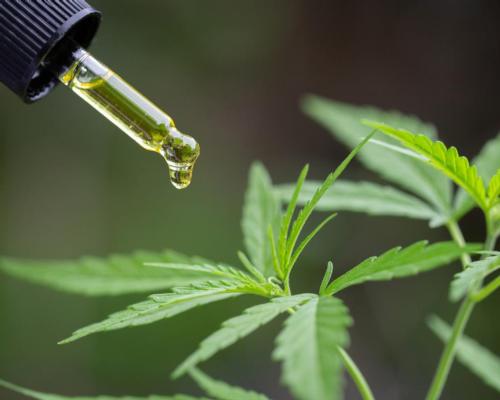11 Dec 2020
European Court rules that CBD is ‘not a narcotic’
BY Megan Whitby

The European Court of Justice has stated that cannabidiol (CBD) isn’t a narcotic and “does not appear to have any psychotropic effect or harmful effect on human health”.
The court made the decision while presiding over a recent case concerning a French vaping company, KanaVape. See more about the case at the end of this article
Derived from either hemp or cannabis, CBD is an active but non-psychoactive compound that’s taken the wellness industry by storm in recent years, with a host of CBD-based treatments, tinctures, creams, food and drinks.
It’s believed the ingredient is capable of helping to treat stress and anxiety, inflammation, joint pain, muscle soreness and insomnia, as well as children’s epilepsy.
But, because another part of the marijuana plant – tetrahydrocannabinol (THC) – can cause a psychotropic effect, it was banned in the 1930s and a stigma was attached to the plant.
However, CBD derived from hemp (a variety of cannabis) contains a very low THC concentration – usually 0.3 per cent or less – and tends to be the most typically-used strain.
The news is a win for European CBD suppliers and the wellness industry, but Liz Terry, editorial director of Spa Business and Spa Business insider, believes spa operators should still proceed with caution.
She said: “Operators and suppliers need to tread carefully when it comes to offering CBD treatments, to ensure the industry stays in line with the latest science and is mindful of best practice.
“Medics are already advising caution in the use of CBD internally where people are on allopathic medication, as it’s known to alter the effects of some drugs.
“These are early days for CBD in the industry, so we see this as a time for patience, collaboration with the authorities and a common-sense approach to the offer of treatments using CBD.”
Despite high prices, some retail products have been tested and found to contain either low levels of CBD, potentially dangerous ingredients or high levels of THC, the psychoactive compound in cannabis.
For both the spa and wellness industry and the general public, there is a strong need for more concrete scientific evidence to back up CBD’s efficacy and risks, as well as stricter regulation to control what can be marketed.
The court case
In 2020, KanaVape was sentenced by the Criminal Court in Marseille, France with €10,000 (US$12,087, £9,100) fines and 15+ years prison sentences.
The case was brought over the company’s CBD oil electronic cigarette which used Czech-grown CBD, made from lawfully grown hemp plants, using the entirety of the plant, leaves and flowers.
However, French law mandates only the fibre and seeds of hemp may be put to commercial use.
KanaVape chose to appeal the charges and The European Court of Justice ruled in its favour because the accusation broke the terms of the European law on the free movement of goods.
It advised that: “The national court must assess available scientific data in order to make sure that the real risk to public health alleged does not appear to be based on purely hypothetical considerations.”
Close Window